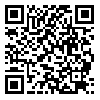

Volume 14, Issue 4 (2-2017)
RBS 2017, 14(4): 415-420 |
Back to browse issues page
Download citation:
BibTeX | RIS | EndNote | Medlars | ProCite | Reference Manager | RefWorks
Send citation to:



BibTeX | RIS | EndNote | Medlars | ProCite | Reference Manager | RefWorks
Send citation to:
نریمانی م, ملکی پیربازاری م, میکائیلی ن, ابوالقاسمی ع. A Comparison of the Effectiveness of Exposure and Response Prevention Therapy and Acceptance and Commitment Therapy in Reducing the Obsessions and Compulsions of Patients. RBS 2017; 14 (4) :415-420
URL: http://rbs.mui.ac.ir/article-1-494-en.html
URL: http://rbs.mui.ac.ir/article-1-494-en.html
1- استادیار، گروه روانشناسی، مؤسسه آموزش عالی رحمان، رامسر، ایران
2- دانشیار، گروه روانشناسی، دانشکده علوم تربیتی و روانشناسی، دانشگاه محقق اردبیلی، اردبیل، ایران
3- استاد، گروه روانشناسی، دانشکده ادبیات و علوم انسانی، دانشگاه گیلان، رشت، ایران
2- دانشیار، گروه روانشناسی، دانشکده علوم تربیتی و روانشناسی، دانشگاه محقق اردبیلی، اردبیل، ایران
3- استاد، گروه روانشناسی، دانشکده ادبیات و علوم انسانی، دانشگاه گیلان، رشت، ایران
Abstract: (4255 Views)
Aim and Background: The aim of the present study was to compare the efficacy of acceptance and commitment therapy (ACT) with exposure and response prevention (ERP) therapy in reducing the obsessions and compulsions of patients with obsessive-compulsive disorder (OCD). Methods and Materials: The present experimental study was conducted with a pretest-posttest design and a control group. The statistical population included all patients with OCD who were older than 18 years of age and referred to private counseling centers and urban and rural health centers in Rasht Province, Iran, in 2014. The statistical sample consisted of 45 patients with OCD selected from among those who referred to these centers. The subjects were randomly divided into experimental (ACT and ERP groups) and control groups. The experimental groups received 8 treatment sessions lasting 45 minutes. In order to assess the severity of obsession and compulsion, the Yale-Brown Obsessive Compulsive Scale (Y-BOCS) was utilized. Findings: There were significant differences among the three groups in terms of post-test scores of obsession and compulsion (P ≤ 0.010). The results of Tukey's test showed that the mean ACT and ERP scores of both experimental groups were significantly lower than that of the control group (P ≤ 0.050). Conclusions: According to the results of this study, ACT causes a greater reduction in the severity of obsessions and compulsion. Thus, mental health experts can use ACT as a therapeutic option.
Keywords: Acceptance and commitment therapy, Exposure and response prevention therapy, Obsessive and compulsive disorder
| Rights and permissions | |
 |
This work is licensed under a Creative Commons Attribution-NonCommercial 4.0 International License. |



